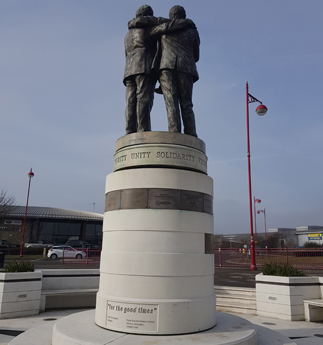As part of a national roll-out, an intelligence sharing system is being launched in the East Midlands, preparing businesses for the task of tackling terrorism.
The start of ‘Cross Sector Safety and Security Communications (CSSC)’ is part of a national Action Counters Terrorism campaign. CSSC is a partnership between the police and the businesses. An alert system shares information across the public and private sectors, aiding organisations to make decisions to keep premises secure and their staff and customers safe. That’s not just in the event of a major incident such as a terrorist attack; during quieter times CSSC shares security best practice for business resilience.
East Midlands Deputy Chief Constable Chris Haward said: “From global corporations to your local corner shop, communities are built on business. So when we talk about communities defeating terrorism we are very much talking to the business community as well. CSSC is one of a number of methods we use in bringing businesses into the fold to tackle terrorism, including regular liaison with key venues and the staging of training events and exercises to prepare and protect against this complex threat.
“CSSC is a very simple mechanism ensuring accurate and consistent information is shared with people at the time when they need it. But it’s not just a one-way thing. We hope this will open up the lines of communication not just between police and business, but also across the sectors. It’s a way of formalising existing channels of communication and ultimately strengthening our influence on keeping people safe.”
Updates from National Counter Terrorism Policing are shared with regional ‘business champions’, known as Industry Sector Leads (ISLs), who have been identified as key individuals in their area. They will then cascade the messages within their sector.
Tailored messages to specific sectors can also be shared this way – not just about counter-terrorism but advice around business crime, fraud and cyber-crime.
Messages for the most part are shared via email. In more urgent scenarios, text messages will also be used and in rare cases ISLs will be invited to log into conference calls.
Thirty businesses signed up as ISLs in the region, such as Boots, Next, Starbucks, BT, East Midlands Ambulance Service, Nottingham BID, the Post Office and Rolls Royce.
Andrew Nicholls, who chairs the CSSC East Midlands Management Board, said: “Having worked in the security industry for much of my career I have seen first-hand the power of well-developed channels of communication. CSSC doesn’t deal in rumour or speculation, only facts straight from the authorities. It’s what you need to know, when you need to know it. This is the police and other authorities utilising the business network to increase awareness and ultimately help keep people safer.
“There really is no catch. And it’s a completely free service ensuring we are all on the same page when it comes to crime, trends and threats. As far as CSSC is concerned, there’s no such thing as too many cooks, the more members we have the better: better for the security of your business, better for the safety of your customers and better protection of the community at large.”
Visit https://www.thecssc.com/. If you own a business in the East Midlands and would like to receive alerts email [email protected].
Pictured: Clough and Taylor statue, Derby County FC, Pride Park.









